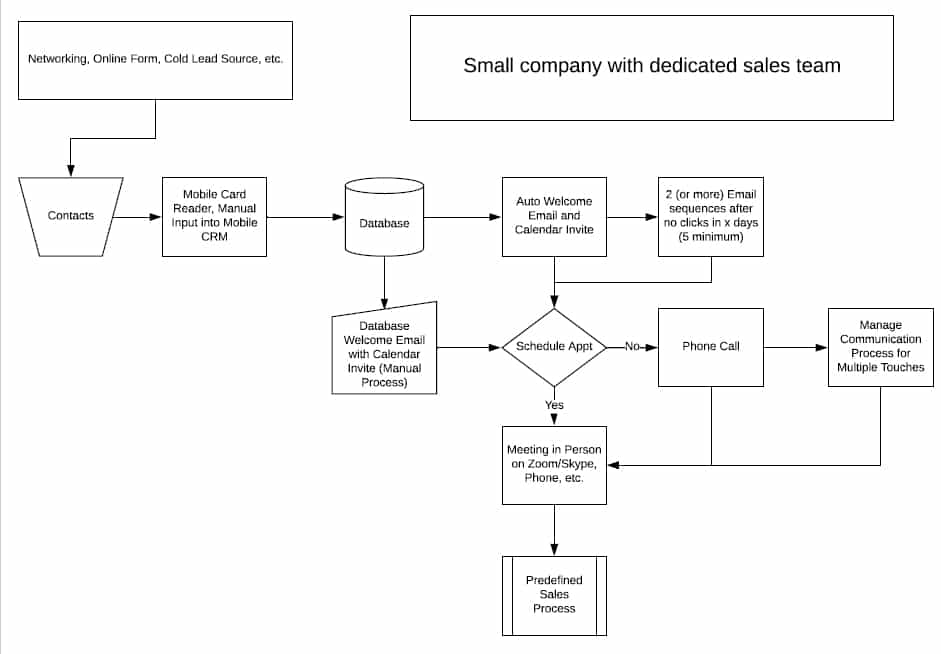Customer Relationship Marketing (CRM) System Selection and Implementation
Are you a Realtor with a goal to start your own brokerage? Are you starting or growing a yoga studio or a fitness gym to the next level? Perhaps you want to grow a business that markets and/or services business technology (computers, copiers…etc.).
All these business growth scenarios have one thing in common:
To be successful you will need a steady stream of clients. However, locating, attracting and engaging new clients can be a long, involved sales process. Did you know that 80% of sales are made on the 5th-20th contact?
If your sales team is not consistently following up with prospects, providing value at every touch, asking for the order and stopping before the 5th touch, you’re losing money! Since approximately 90% of leads are contacted less than four times, a systematic approach to managing those precious relationships makes sense.
Customer Experience Flow Chart

For the greatest opportunity for success you will need an effective CRM system customized to your business needs, along with the training and support to maximize this tool.
According to research by Get CRM, a CRM system can increase sales up to 29%! So, while it makes sense to have a CRM the tough part is choosing which one. There are dozens of systems to choose from. How do you know which one is right for you?
We can help!
We will help you determine your needs in a CRM system, help with implementation including customization and training.
What’s included?
- Team engagement briefing/training (Your sales team must have “buy in” for your CRM to be successful.)
- Current systems review (What’s working now? What’s not working?)
- Current sales process analysis (Your CRM needs to fit your sales process, not the other way around!)
- Budget analysis (What’s the cost? Where is the ROI?)
- Resource analysis for implementation (What’s available?)
- Determine systems requirements (What features do you need?)
- Review available systems on the market (What’s the closest fit?)
- Custom system development consideration (Is further customization important?)
- Cost benefit analysis (Features and Benefits vs. Cost)
- Support analysis (System set-up, training and maintenance.)
- System selection (Your final “best” option.)
- Implementation schedule developed (Planning the roll-out.)
- System maintenance (Continued system maintenance, training and team engagement.)
Upon completion of the system selection process you and your team can implement the system on your own with our guidance, or our team will assist with the implementation as needed.
All this may seem a bit extensive, but in reality a good CRM system is the path to systematic and sustainable business growth. This is the way to reach your goal! And our CRM system specialist has successfully used this same strategy to grow a business like yours.
